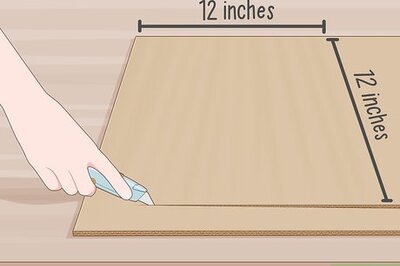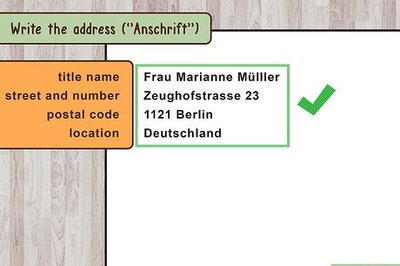
views
Getting a One-to-One Aide for Your Child

Ask for an IEP. If your child has special needs, they should have an IEP (Individual Education Program). Make an appointment with your child's teacher to discuss creating your child's IEP. If your child does not yet have an IEP, make an appointment to create one. Prepare for the IEP. If you have any documents that support your case, bring them. This could include medical records, notes from previous teachers, etc. Schedule a conference with your child's teacher and the principal. Ask the school to have your child assessed by specialists in the school system. This will not cost you any money. Based on the findings of the evaluation, an IEP will be created.

Help plan the IEP. To arrange the IEP, the principal might want to hold a meeting that includes you and any professionals with information to contribute. This might include special education teachers, previous teachers of your child, and home-aides or social workers who work with your child). If your child is over 16, they may also be included. Invite anyone you think can help contribute, such as after-school educators or coaches. If you don't feel your school is treating the situation fairly, you may hire an attorney to accompany you to the meeting. If you can't afford an attorney, the school system may provide you with one for a discount or for free.

Define the aide's qualifications. While you participate in the planning of the IEP, make sure you state very specific requirements for the individual who will be helping your child. Advocate that the IEP specify hiring someone with a specific degree, certificate, or a certain number of years of experience in the needs of children like yours. It is frequently a challenge for schools to afford properly qualified individuals, but they must make every attempt to hire someone who fits the requirements of the IEP.

Get a private evaluation. If your child's evaluation does not say they need an assistant, but you believe they do, you can have your child independently evaluated. Visit a specialist in your child's condition and ask them for an evaluation. Under FAPE, the school board must consider all independent evaluations. In some cases, the school will conduct their own IEE. This happens when the school system does not have anyone qualified to evaluate your child.

Consider alternatives. One-to-one aide's can make all the difference for your child. In many cases, however, a one-to-one aide restricts a child's developing independence. Look around for schools with integrated classrooms, or other schools that emphasize peer support. If it is developmentally feasible, the goal should be to reduce the presence of the aide until they are no longer needed.
Asking for a Peer Helper

Inquire as to whether your school has a peer-helper program. Students like this might come with many names, such as "buddies," "tutors," "peer-buddies" "peer-to-peer supporters" or other titles. Go to the office to ask for assistance, or have a parent or guardian make an appointment.

Explain exactly what you need. Do you need someone to help you get from class to class? Your school might have students who volunteer for this activity and can take you on. Someone to share notes with you? Your school may assign a different student in each of your classes who is willing to take on this responsibility, or just one student who is in your grade. Some schools offer an elective for students who volunteer to be a personal aide for a period every day. Your school may prefer to have professional adults take care of tasks like this.

Establish a good relationship with your peer-helpers. Make friends with your peer helper if that feels natural. If it doesn't, you don't have to force it. You can have a friendly but impersonal relationship as long as it gets the job done. Hopefully, your helper will be timely, friendly, and easy to work with. If your peer helper is consistently late, unfriendly, or doesn't communicate well with you, you can ask for a different one from the office. Your relationship should be mutually supportive. General education peers benefit from explaining things they've just learned, or from feeling helpful during breaks, and you benefit from their time.

Communicate about your needs and preferences. If your helper talks in a condescending way, or tries to help you with things you don't need help with, gently explain what you need and what you don't need. You might say, "It's nice of you to offer me reminders, but I don't have any trouble with my memory. I need copies of your notes because I can't write quickly, not because I think differently." You can also explain how it makes you feel: "I feel like you don't understand what I need. Please don't speak to me like I can't process normal information. It makes me feel unseen." If your helper blows off your comments or doesn't change their habits, you can ask for a teacher to help reinforce the message, or you can ask for a different aide.




















Comments
0 comment